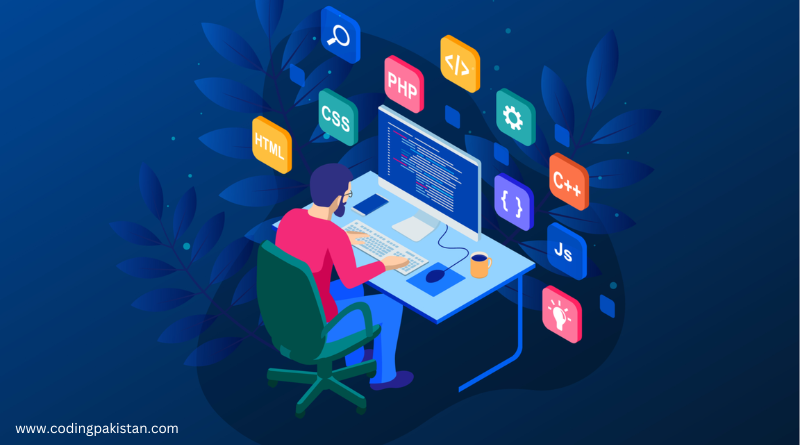Intro:
Programmers are respected in the tech world and programming is a respected profession. Are you one of those people who has ever wondered how to become a programmer? The worlds of Data Science, Machine Learning, and Artificial Intelligence offer lucrative and fulfilling programming jobs, which is why many young people fall for these jobs.
Pondering on the issue. In this blog, I will show you how to build a career as a programmer. Follow a few simple steps consistently and the skill will be yours.
1. How do you become a programmer?

The best way to learn to program is to play with small code snippets like “Hello World”. This particular code snippet in many programming languages was the first programming experience for many programmers.
After running this code, you should see Hello World on your computer screen. How long does it take to write such a small code snippet? Probably be 15 minutes. Code snippets like that can’t do much for humanity. The question “how to become a computer programmer” doesn’t seem so scary once you start writing these simple blocks of code.
On the other hand, it takes about a month to create a large code set for a practical application. But here’s the good news! Larger code sets are typically built from smaller code snippets that communicate with each other.
2. Clear Mindset before learning programming

Learning a language is important for getting a job, but this mindset may not be a strong motivator for learning to program. Dropbox CEO Drew Hudson said: Facebook CEO Mark Zuckerberg shares his programming experience: People who have never built a business come together to build something that a billion people will use. Think of your programming skills as your personal superpower to change the world in constructive ways.
3. What do you want to do?

Decide what kind of job you want to do, whether it’s building a website, becoming a Data Scientist, Automating business processes, or becoming an Artificial Intelligence expert.
4. Select language

Choosing a language to learn becomes easier once you’ve honed yourself in the type of work you want to do. Every programming language has a typical set of applications. This allows you to focus on learning the language that really matters in your chosen field. So you won’t get bogged down in learning multiple languages. For more information, see the “Which language should I choose?”
5. Start small

Gabe Newell, the founder of gaming company Valve, said of him, “It was the first time I actually held something and said ‘Hello World’… it was the first time a computer could do it.” was a surprise.
6. Use the Internet

Sites like Code.org have experience designing programming courses for beginners. Online sites such as Springboard.com emphasize both ease of learning and skill acquisition. These sites have mentors who can help you solve your learning problems and guide you to success.
When it comes to pushing, smart people start. Am I not understanding the code correctly? Is it spitting out bugs you don’t know about? Back away. Are you chewing until you can’t chew? Choose the complexity of the program you can handle. Search the internet for similar problems and how other learners have dealt with them. Importantly, being part of a community of learners goes a long way toward staying on course and mastering a programming language.
“To master any new technology, you have to play with it,” says Jordan Peterson, a renowned Canadian psychiatrist.
7. Coding vs programming:

Those skilled in the art may smile at this question, but although experts use these terms interchangeably, coding refers to the literal act of writing code, and programming involves some other computer input Increase.
For example, if the input to your mobile device is a gesture, program it instead of code. Voice input for devices such as Alexa, Siri, and Google Assistant are examples of programming. But don’t sweat the little things. In most cases, one term can be used for the other.
8. Which programming language would you choose?

There are so many languages to learn, this is a valid question. The first question to answer, though, is where do you want your programming skills to end up? Internet, telecommunications, electronic devices, data analytics, data science, machine learning, artificial intelligence, banking, and more.
Python is becoming an increasingly popular programming language for data science. Another data science programming language is R with quantitative analysis and statistical capabilities. Python supports Django as a web development framework, so it can also be used for web applications. Additionally, Python is widely used in artificial intelligence and machine learning. R is also widely used for data analysis.
C and C++ are very popular in the telecommunications industry. These languages are used to embed code in electronic and electromechanical devices to control their behavior. These techniques are called embedded programming.
Java is also a very linguistically sorted language. Since it has evolved over a much longer period of time, it has a wide range of uses. Spring, Struts, and Java Server Faces are just a few of the many web frameworks Java supports. Java is used in mobile applications, embedded systems, and the digitization of large enterprises. It is also used for some scientific applications.
Conclusion:
There are more factors to become the best and most successful programmer in 2023 but I think these steps are best for beginners. If you have any questions please ask in the comment section. I will answer as soon as possible.
